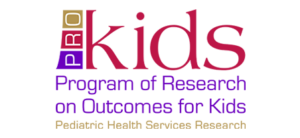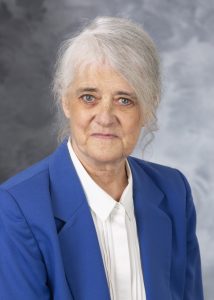- Children and Young Adults
- Engagement in Research
- HIPxChange
- Health Equity
- Older Adults
- Stakeholder Engagement
*Free registration is required to use the toolkits provided within HIPxChange. This information is required by our funders and is used to determine the impact of the materials posted on the website.
What is HARPS?
How to Approach Recruiting and Retaining Patient Stakeholders: An Engagement Guide (HARPS) is a set of planning materials for researchers and others who want to engage patient stakeholders as advisors on research projects, including patient-centered outcomes research (PCOR).
HARPS contains the following materials:
- The roadmap, a fillable workbook that uses 10 guiding questions and supplemental Appendices to help develop ideas and plans for successful engagement of stakeholders.
- An 80-minute workshop video that discusses the 10 guiding questions in the roadmap and addresses key considerations for patient stakeholder engagement.
- 22 supplemental videos (approximately 20-60 seconds each) that feature patient stakeholders, community partners, and researchers discussing key topics related to engagement.
Who are patient stakeholders?
Patient stakeholders are people who use health care services or participate in health research. They can provide valuable advice across all stages of a research project.
All patients can provide useful input on research ideas and processes. However, it is important for research teams to intentionally seek advice from patients generally under-represented in the research enterprise. These patients include members of racial and ethnic minorities, people with incomes below the federal poverty threshold, children and adolescents, older adults, LGBTQ populations, and other groups that are sometimes marginalized or stigmatized.
Patient stakeholders can help researchers:
- Identify possible recruitment barriers for study participants
- Develop targeted recruitment materials and strategies
- Design study procedures that minimize participant burden and help participants feel respected
- Recommend revisions to data collection instruments to improve readability and comprehension
- Interpret study findings
- Plan dissemination of study results
How can HARPS be used?
Researchers and others can use HARPS both as an overview of best practices in stakeholder engagement and as a comprehensive resource for creating detailed engagement plans for hard-to-reach patient stakeholders.
Users who are new to patient-centered research and programs may find HARPS particularly useful as an overview of key considerations in patient stakeholder engagement.
For users with experience creating engagement plans, HARPS can streamline and efficiently organize the process of developing a detailed engagement plan for grant applications.
Development of HARPS
HARPS is based on work originally conducted by the Wisconsin Network for Research Support (WINRS) from 2010-2013 with funding from a National Institute of Nursing Research grant (principal investigator: Barbara Bowers, PhD, RN). For one of the grant aims, WINRS developed two community advisory boards comprised of hard-to-reach stakeholders; these ongoing boards are the Community Advisors on Research Design and Strategies (CARDS®). The content in HARPS is grounded in processes and tools that WINRS created for recruiting, training, facilitating, and sustaining the CARDS®.
Since 2014, WINRS has provided consultation services to Dr. Elizabeth Cox, MD, PhD, on patient engagement for her PCORI-funded study, “Family-Centered Tailoring of Pediatric Diabetes Self-Management Resources.” Together, WINRS and Dr. Cox have adapted processes and tools used successfully with the CARDS® for the parent, teen, and youth advisory boards in her project.
The planning tools in HARPS reflect the practice-based knowledge of the developers on engaging hard-to-reach patient stakeholders.
Companion resources
PAT-1 is a companion toolkit developed by WINRS in 2018 that contains a comprehensive set of modifiable resources for orienting patient stakeholders to their work on research projects. The toolkit provides a complete, step-by-step guide to preparing patient advisors to work effectively with researchers. Researchers can use HARPS to develop an overall plan for patient stakeholder engagement and then adapt the materials in PAT-1 to create a tailored orientation program for patient stakeholders.
TOPPER is a toolkit developed by WINRS and Dr. Cox in 2014 that contains a set of materials for orienting stakeholder groups of parent advisors.
Funding
Development of HARPS was made possible through a multidisciplinary partnership of programs affiliated with the University of Wisconsin – Madison Institute for Clinical and Translational Research Community-Academic Partnerships program (ICTR-CAP) and is supported in part by grant UL1TR0000427 to UW ICTR from NIH/NCATS and the UW-Madison SMPH Wisconsin Partnership Program. The content is solely the responsibility of the authors and does not necessarily represent the official view of the funders.
References
Fiallo-Scharer R, Palta M, Chewning BA, Rajamanickam V, Wysocki T, Wetterneck TB, Cox ED. Impact of family-centered tailoring of pediatric diabetes self-management resources. Pediatr Diabetes. 2019 Nov;20(7):1016-1024.
Toolkit Citation
Kaiser BL, Thomas GR, Cox ED. How to Approach Recruiting and Retaining Patient Stakeholders: An Engagement Guide (HARPS). University of Wisconsin – Madison, 2016. Available at: https://www.hipxchange.org/HARPS




 Betty Kaiser, PhD, RN is Director of Stakeholder Training for the
Betty Kaiser, PhD, RN is Director of Stakeholder Training for the  Gay Thomas, MA is Director of Stakeholder Engagement for the
Gay Thomas, MA is Director of Stakeholder Engagement for the 


 Thuy Dan Tran, BS, is a Research Specialist with the
Thuy Dan Tran, BS, is a Research Specialist with the